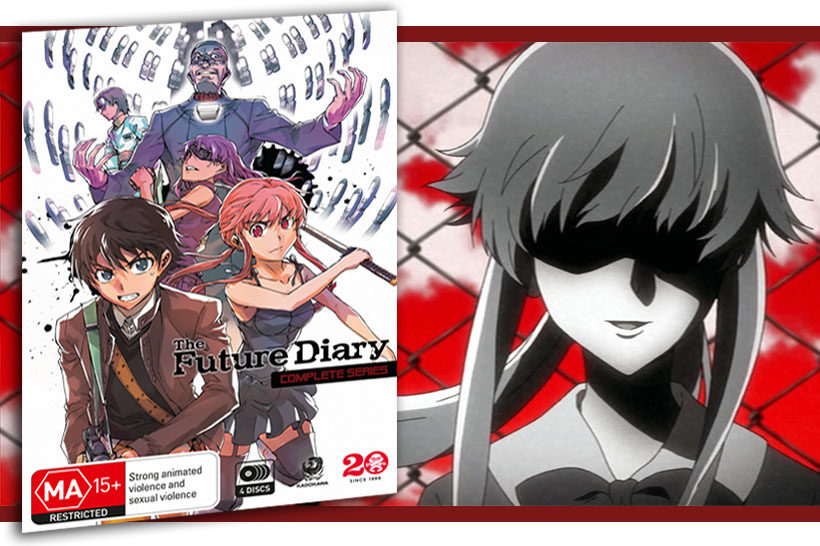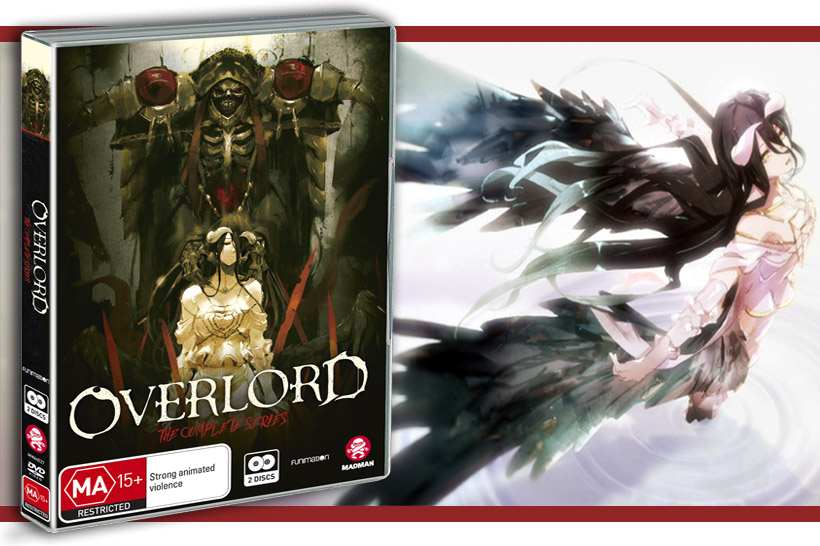Wow. I knew that this show had a reputation, but nothing could prepare me for what The Future Diary had in store. From the moment I began watching, this anime commanded my undivided attention, presenting increasingly messed up scenarios. Having just finished, I’m positive that I’ll be pondering this show for the foreseeable future. Although I had no idea what was going on half the time, the story left such an impact on me that I can confidently justify saying that The Future Diary is now one of my favourites. I was surprised at how interesting each individual character is, and the whole style that is established creates something so unique that it’s impossible to forget. The show appears to outright ignore a few obvious plot holes and some incredibly stupid decisions made by the characters, but I was surprised to find that this didn’t detract from my overall enjoyment.
Fourteen-year-old Yukiteru Amano is immediately identified as the weird kid at school who has no friends and stares at his phone all day. Little do his peers know that Yuki is actually best buds with a dude called Deus Ex Machina, who just so happens to be the god of this world. What’s more, Deus intends to find himself a successor to his role as god, but not just anyone will do. The only people who are worthy of donning the mantle of godhood are criminally insane with a wide array of psychological disorders. You know, just general god traits. Being one of the chosen twelve, Yuki must join a survival game against people who can predict the future, where only the last person alive can be named the new god. Oh, and did I mention his psycho stalker-girlfriend is also involved and unnervingly good at killing people?
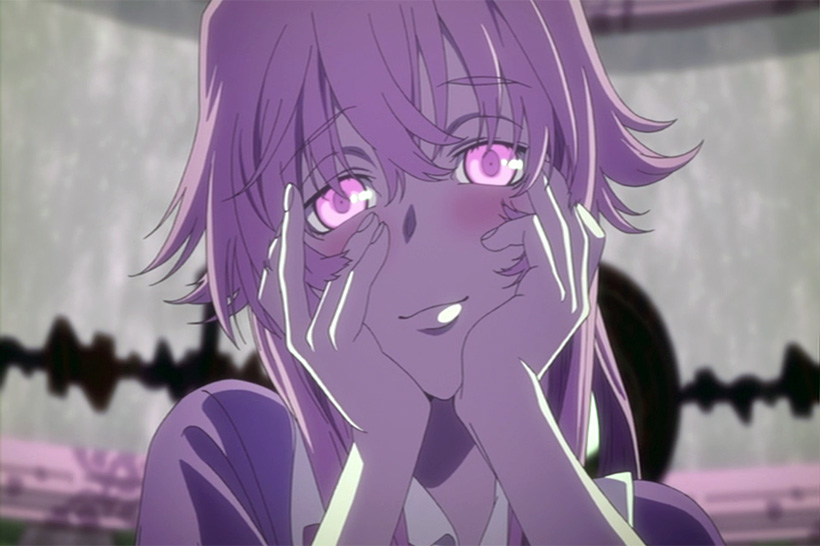
Yuno Gasai, the aforementioned stalker-girlfriend of Yuki, demands the audience’s attention despite the numerous other characters who stand out in The Future Diary. There’s something incredibly special about the way she has been crafted, to the point I find myself unsure whether I think she’s the greatest thing since sliced bread or the reason anime was a mistake. Spurned on by the possibility of Yuki’s love, there is nothing that can stop Yuno from doing what she believes is right, and the repercussions of this mindset create some entertaining and terrifying situations. I believe she’s the first true Yandere character that I’ve seen portrayed in anime, and the way her mind works fascinates me. I won’t go into too much detail for fear of spoiling, but suffice it to say Yuno is a character who is most definitely psychotic and never fails to surprise.
When it comes to the other characters, of which there are a lot, it’s a mixed bag of more crazy and somewhat sensible. Now that everything has wrapped up, I think I can honestly say that the main character, Yuki, was probably the most forgettable. With a cast of such distinct characters, he doesn’t really offer much to set himself apart. Of course, this is probably intended and it definitely helps accentuate Yuno in particular. I don’t dislike him because of it, but he isn’t someone I look back on and think of as remarkable. In terms of character interaction, for many reasons I was constantly thrown at the objectively irrational alliances that are formed. Additionally, it’s frustrating how little those not initially part of the game care about the greater workings of what is going on once they are clued in.
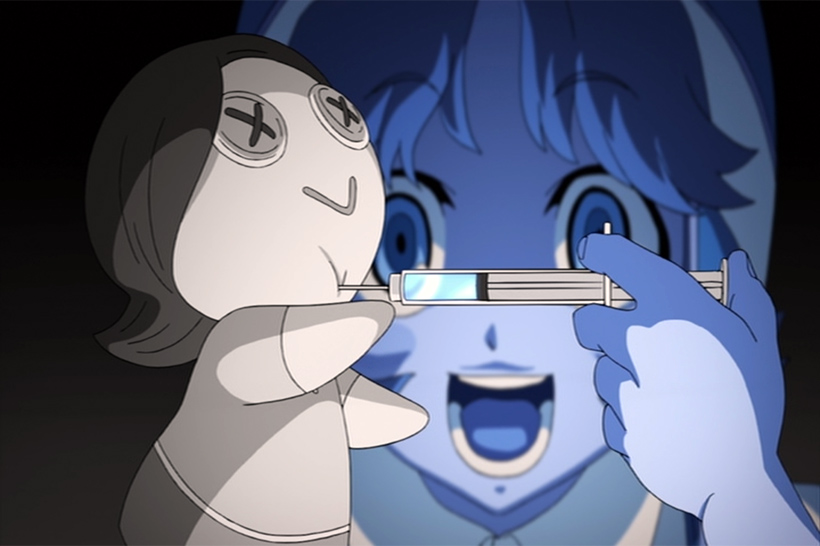
To reiterate, the premise of the show revolves around how Deus is looking for someone to replace him, setting up a survival game in order to determine who will. One of the main features of the game is each player’s ability to see into the future in a way that is personal to them. For example, Yuki’s indiscriminate diary gives him insight regarding anything that happens around him, but not necessarily directly involving him. In Yuno’s case, with her diary of future love, she receives constant updates on whatever happens to Yuki himself. Again, I won’t elaborate too much on the different diaries, but the inclusion of different ways in which characters see the future really keeps the plot up in the air and leaves you guessing the whole time.
Altogether the idea of the game and the characters involved create a vibrant, beyond messed-up world that is so much fun to watch unfurl. Though, to fully enjoy what The Future Diary has to offer a certain degree of suspension of disbelief is required. There are a wide variety of things that would logically not occur under the circumstances. I’ve already glossed over some when talking about characters, but the most frustrating thing is how often the future is laid out only for those who know to immediately be caught off guard when it happens. What’s the point in being able to see the future if you just blatantly ignore the events that transpire until the second they happen? These moments go way beyond unrealistic; I don’t know a single person who, when presented with these situations, would actually be so dense.

The Future Diary strings you along the whole time, becoming more and more ridiculous as it progresses. The flaws that are almost proudly displayed are very plain to see, and, if I’m completely honest, it’s detrimental to the quality. A lot was left to be desired when it came to the ending, but I admit that I definitely didn’t see it coming. Even still, I’d be lying if I said that I didn’t love it. Yeah, it’s a bit distressing when you realise that fourteen-year-old girls’ boobs are displayed proudly on several occasions, but it’s just one of those moments where you can’t say anything more than, “classic anime.” And hey, for once this is a show that is undeniably best suited for the weeb-screen.
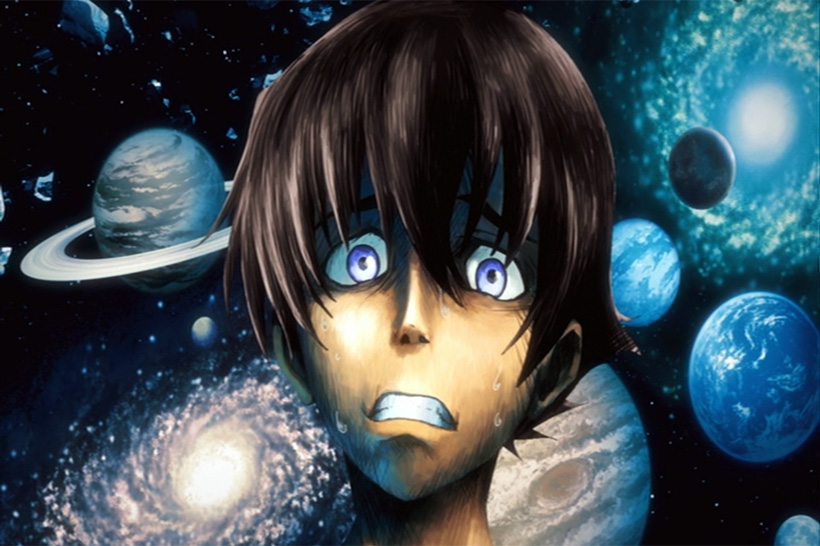
It’s been a while since an anime has generated such strong emotions from me. I was genuinely surprised at so many points, especially when I found myself rooting for some of the “bad guys”. If you can happily ignore the fact that the characters in this show are able to remain completely oblivious to a series of explosions occurring just down the hall from them, then you’ll have no troubles diving into The Future Diary.
A review copy was provided by Madman Entertainment to the author for the purpose of this review.

